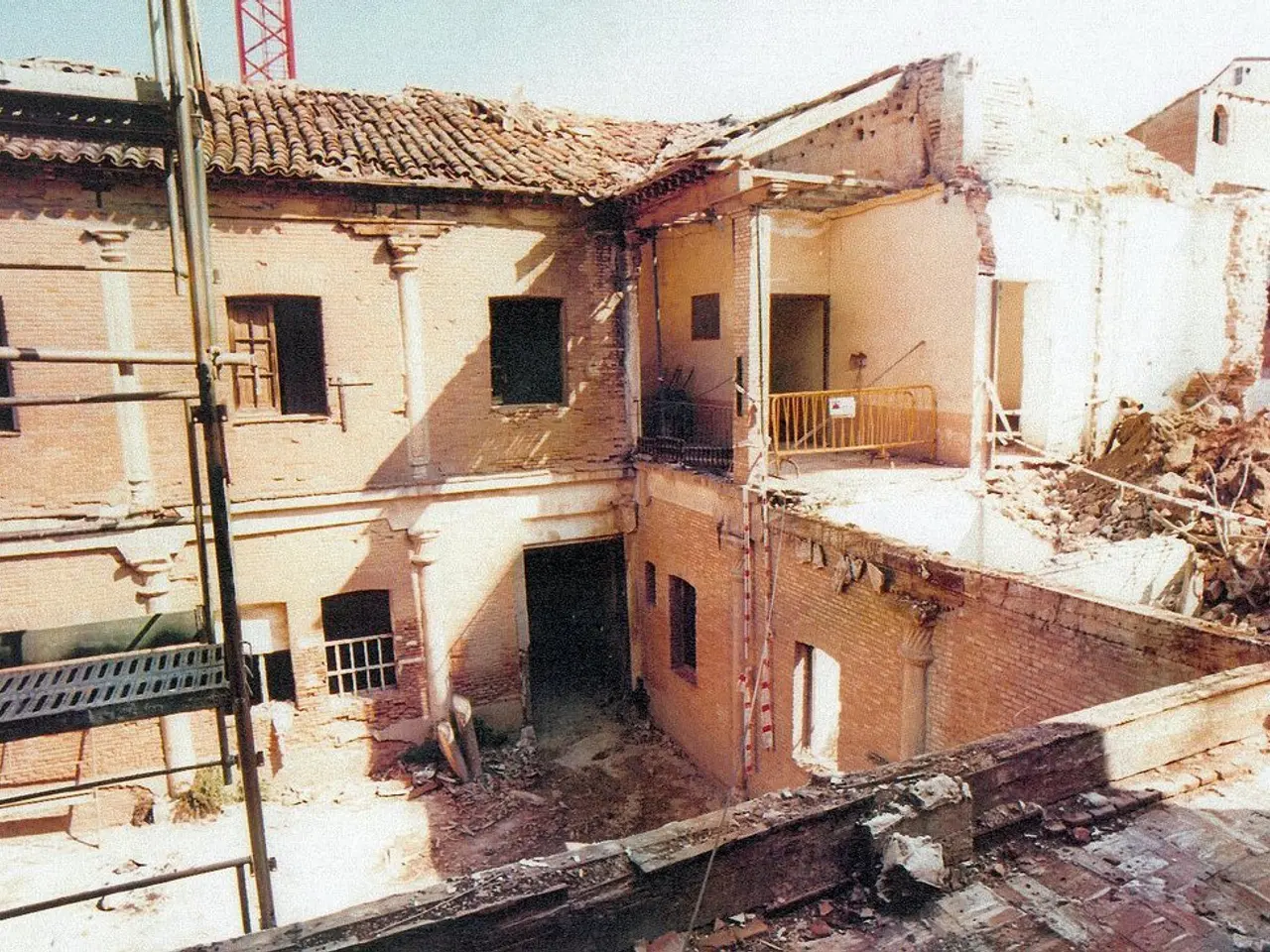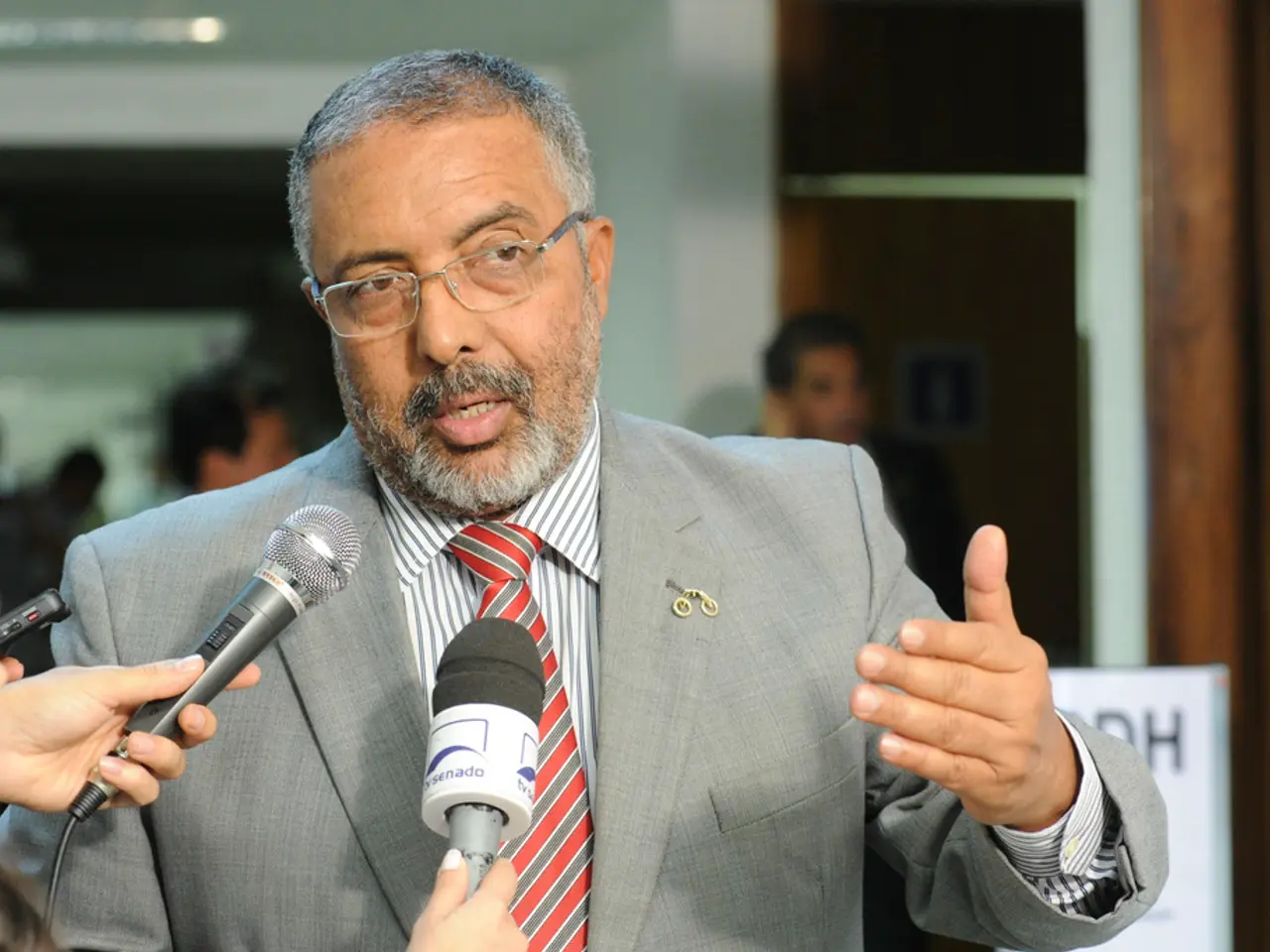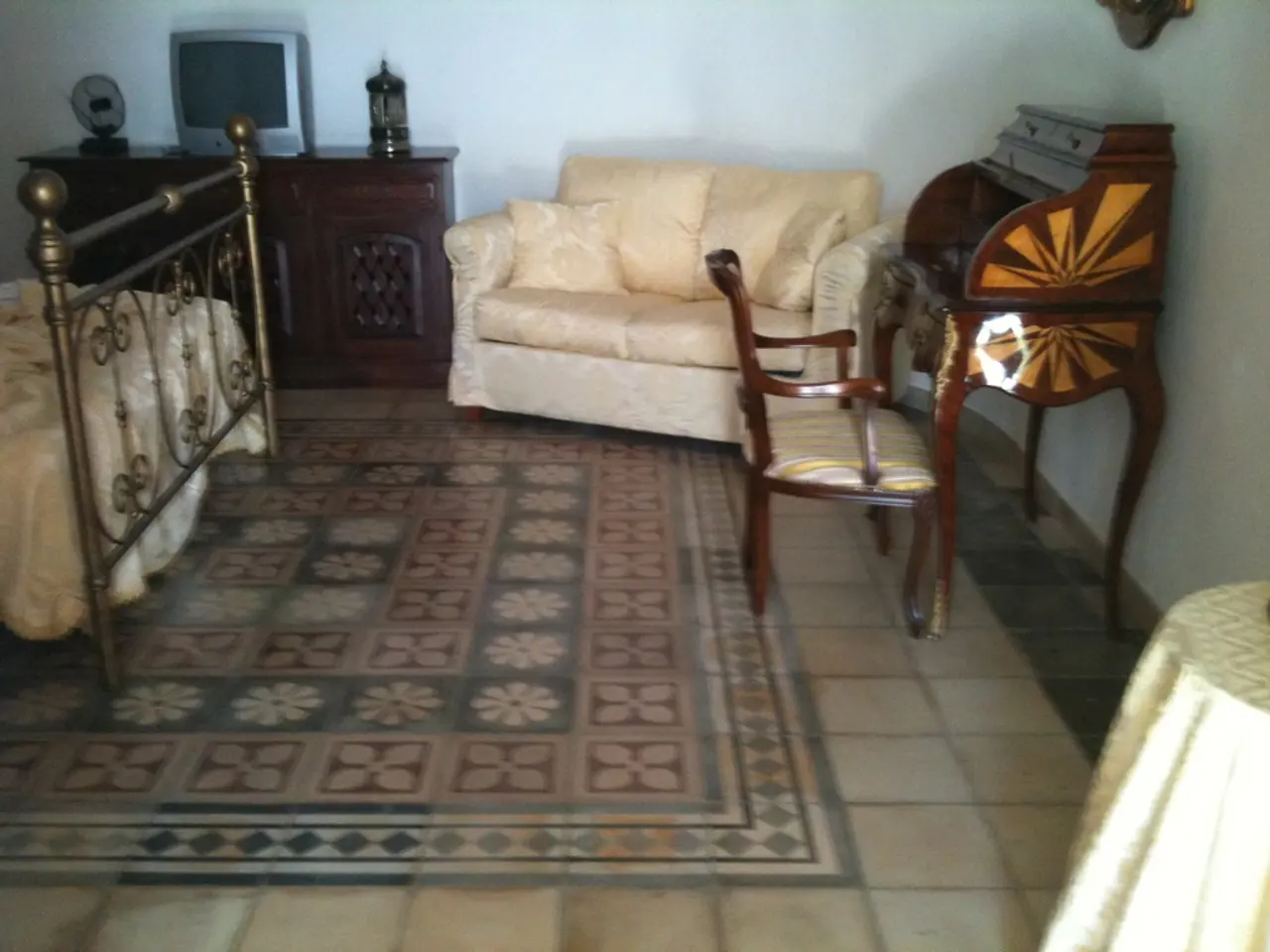Investigating and Addressing Unlawful Dwellings
In the heart of Lisbon, Portugal, the ongoing housing crisis has led to a significant problem: illegal occupation of council (public) housing. As of mid-2025, there are 721 recorded cases of this issue[3].
Recent tensions flared between political parties, particularly between the Socialist Party (PS) and the Social Democratic Party (PSD), during a session of the Lisbon Municipal Assembly. The discord was prompted by a recommendation from the Chega party, calling for the urgent identification and eviction of illegally occupied social housing[1].
The Chega proposal was met with mixed reactions. While it received support from parties such as PSD, IL, MPT, Aliança, CDS-PP, and Chega themselves, it faced rejection from BE, Livre, PEV, PCP, and PS[1].
Roseta, the Mayor of Lisbon, addressed the assembly, stating, "We are rigorous and truthful, but we must also be humane." She acknowledged that many unauthorised occupancies involve families who have remained in properties without formal tenancy agreements, and that these families often face severe social vulnerability or lack awareness of the housing support system[1].
Despite the Chega proposal's rejection, the council is assessing each case on a case-by-case basis. Of the 700 unresolved cases, 600 families have submitted documentation. So far, 300 cases have been resolved, with over 100 found vacant, another 100 vacated, and just over 100 regularised[2].
It's important to note that the current government, led by Prime Minister Luís Montenegro, has acknowledged the housing crisis and the illegal occupation issue, but specific policy measures concerning eviction or housing regularization of occupiers have not been detailed[3].
The broader context is a general housing shortage and affordability crisis in Lisbon and Portugal. This fuels demand both for social and private housing, while price caps (e.g., a 2.16% rent cap introduced in 2025) aim to mitigate rental costs but do not directly address illegal occupation[2].
The complexity of the housing crisis suggests a multi-faceted political debate, but specific party stances on illegal occupation remain unreported here. However, the context implies that the center-right government (Montenegro's administration) is confronting the issue as part of a wider housing crisis, with efforts also focusing on noise reduction policies near Lisbon Airport[3].
Roseta clarified that homes are not inherited in the city of Lisbon. She emphasised that the goal is to support those who need it most, and that cases eligible for regularisation are limited to those established before October 2021[1].
The PS criticised the Chega proposal, arguing it contradicts the council's current humanitarian approach. The Chega proposal aimed to block any future legalisation of unauthorised occupancies, a stance that the PS finds contrary to the council's aim of supporting those most in need[1].
In summary, illegal occupation of social housing in Lisbon is a significant and recognized issue amid the broader housing crisis. While the government acknowledges it through data and general measures, explicit political party stances or targeted policy responses to illegal occupation itself are not detailed in the provided sources[3][2].
- The ongoing debate within politics, specifically in Portugal's Lisbon Municipal Assembly, entails discussions on policy-and-legislation concerning the illegal occupation of council housing, as illustrated by the Chega party's recommendation for urgent identification and eviction of illegally occupied social housing.
- In the heart of Lisbon's general-news sphere, a key focus is the political stance on the ongoing housing crisis, with parties expressing varying views on the Chega proposal to address illegal occupation of public housing, revealing a complex politics landscape amidst calls for humane solutions and support for vulnerable families.







